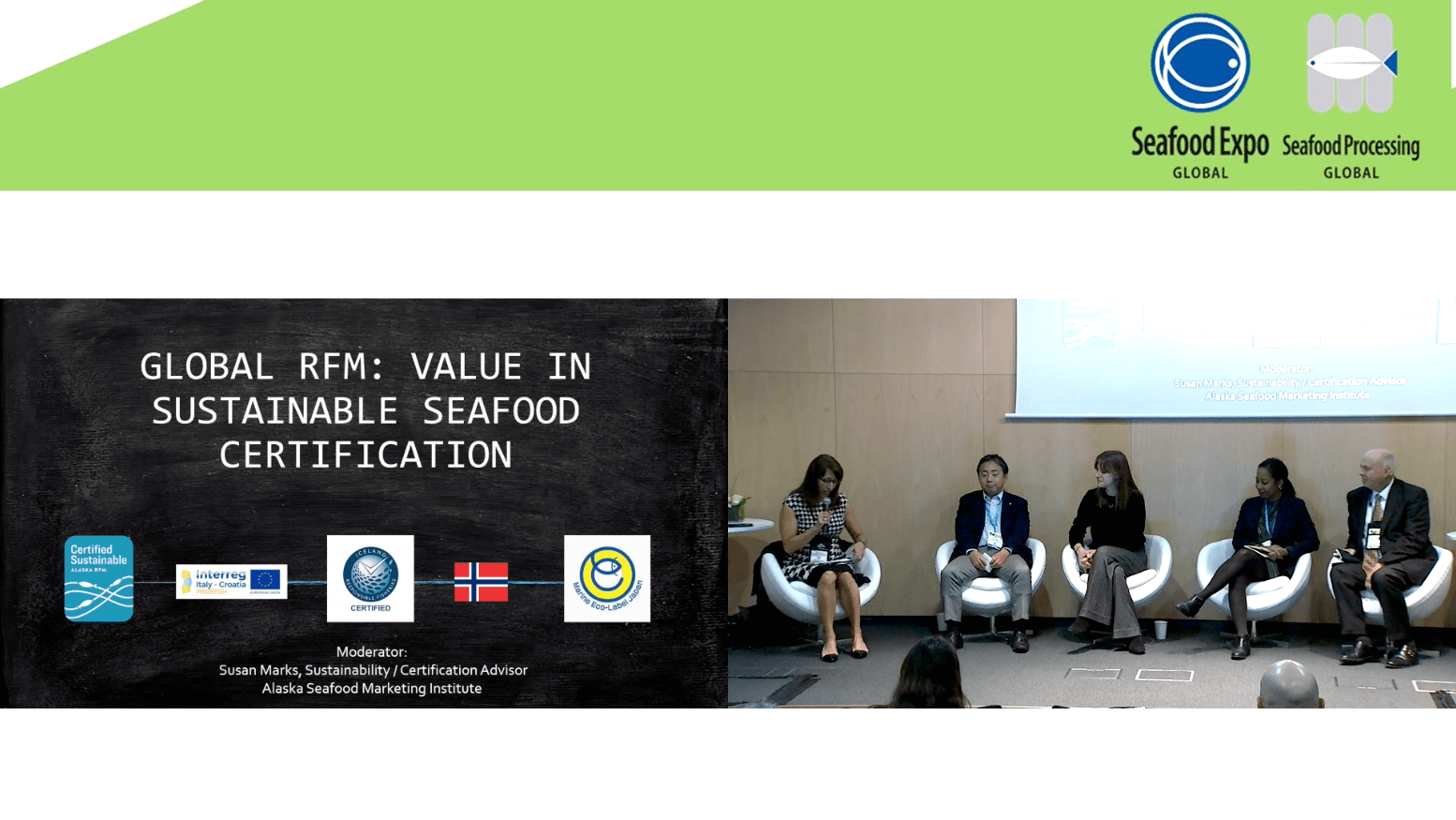Global RFM: Value in Sustainable Seafood Certification | Product
Speakers: Sévrine Bethy, Food Safety and Responsible Sourcing Manager - Group Supply Management - SODEXO, Hisa Kanno, Secretary General / Technical Manager - Marine Eco-Label Japan Council, Allen Kimball, International Fisheries Operations and Sales Consulting - Trident Seafoods, Giulia Sandalli, Postdoctoral research fellow - Institute for Marine Biological Resources and Biotechnology of the National Research Council (CNR-IRBIM), Sigrid Merino Sardá, Managing Director - Iceland Responsible Fisheries Foundation
The Responsible Fisheries Management (RFM) certification programs offer a way for markets to provide certified, sustainable seafood and highlight the origin without the added expense of logo-licensing fees. Research shows that origin is often a key motivator for seafood purchases and consumers continue to demand more transparency in knowing where their food comes from. (Datassentials; Edelman Trust Barometer 2021) Many certification programs do not include origin on their logos leaving consumers in the dark about where their sustainable seafood comes from. Our goal is to make certified sustainable and traceable wild-caught seafood accessible to all. RFM based programs in Alaska, Iceland, The Gulf States, and Japan have gained momentum in the last few years, with all four achieving recognition to the Global Sustainable Seafood Initiative (GSSI) global benchmark. These programs are accredited and rooted in the Food and Agriculture Organization (FAO) Code of Conduct for Responsible Fisheries and provide a way for well-managed fisheries to be recognized as sustainable. For the supply chain, RFM programs provide a credible and affordable certification choice for customers who want to:
• Demonstrate proof of sustainable seafood sourcing;
• Highlight the origin of their certified sustainable seafood via an ecolabel that is free to use;
• Lessen the cost burden for all participants in the supply chain.
This panel will discuss how the various RFM Programs in North America, Iceland, and Japan are working together towards a future vision for a global RFM program that will eventually represent 6,000,000+ metric tons of certified, sustainable wild-caught seafood and why this appeals to other countries that are interested in offering RFM certification for their fisheries.
We will hear from fisheries in the European Union who are currently considering development of their own RFM program and why they have decided now is the time to explore alternative certification programs. You will learn about the shared Chain of Custody Standard between Alaska and Iceland and how this model is serving as a blueprint for future collaborations between RFM programs that will benefit the marketplace. We will also hear from industry how using the RFM Program adds value and saves money. Finally, we will discuss the difference between the RFM model of certification and other programs that charge a fee to gain market access. How can these programs exist and not charge logo-licensing fees? It is possible and is the foundation these programs are committed to upholding.






